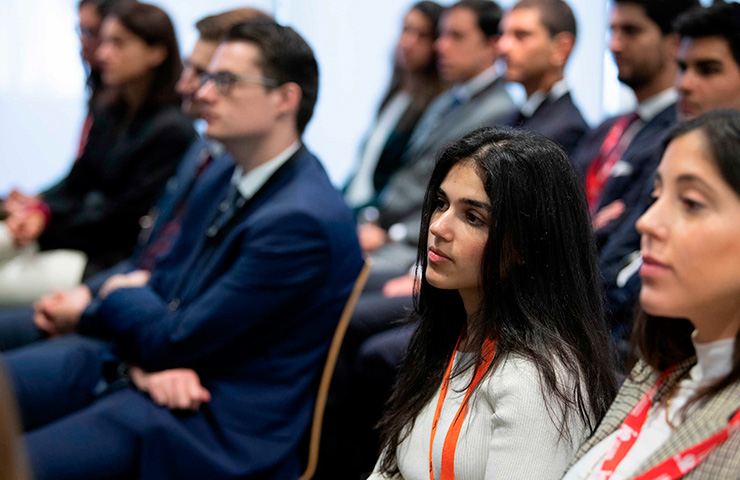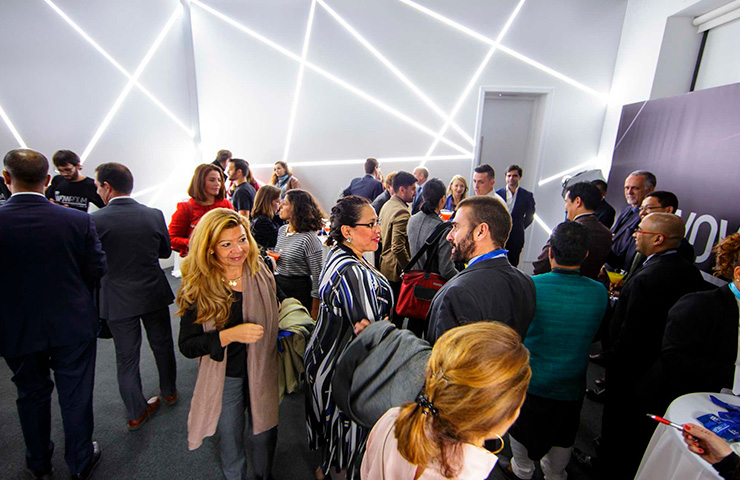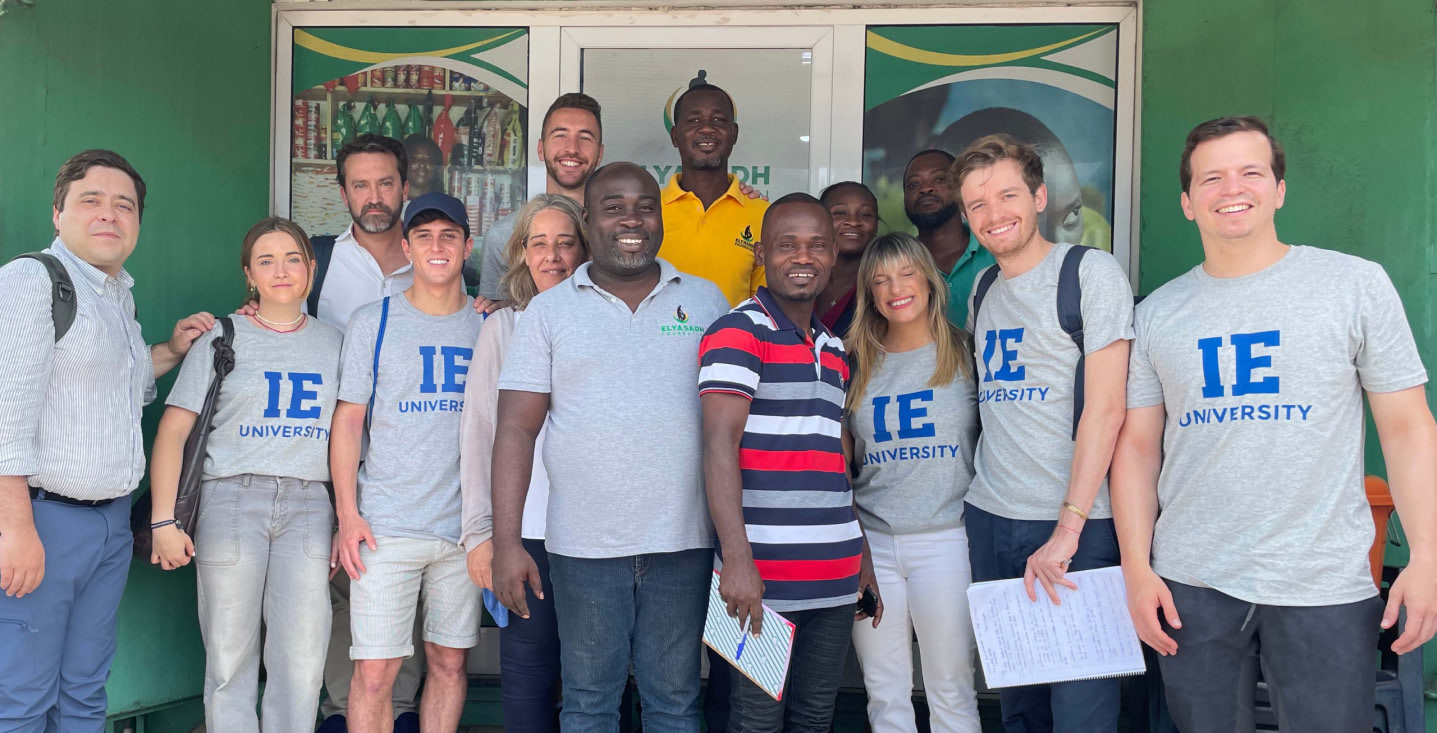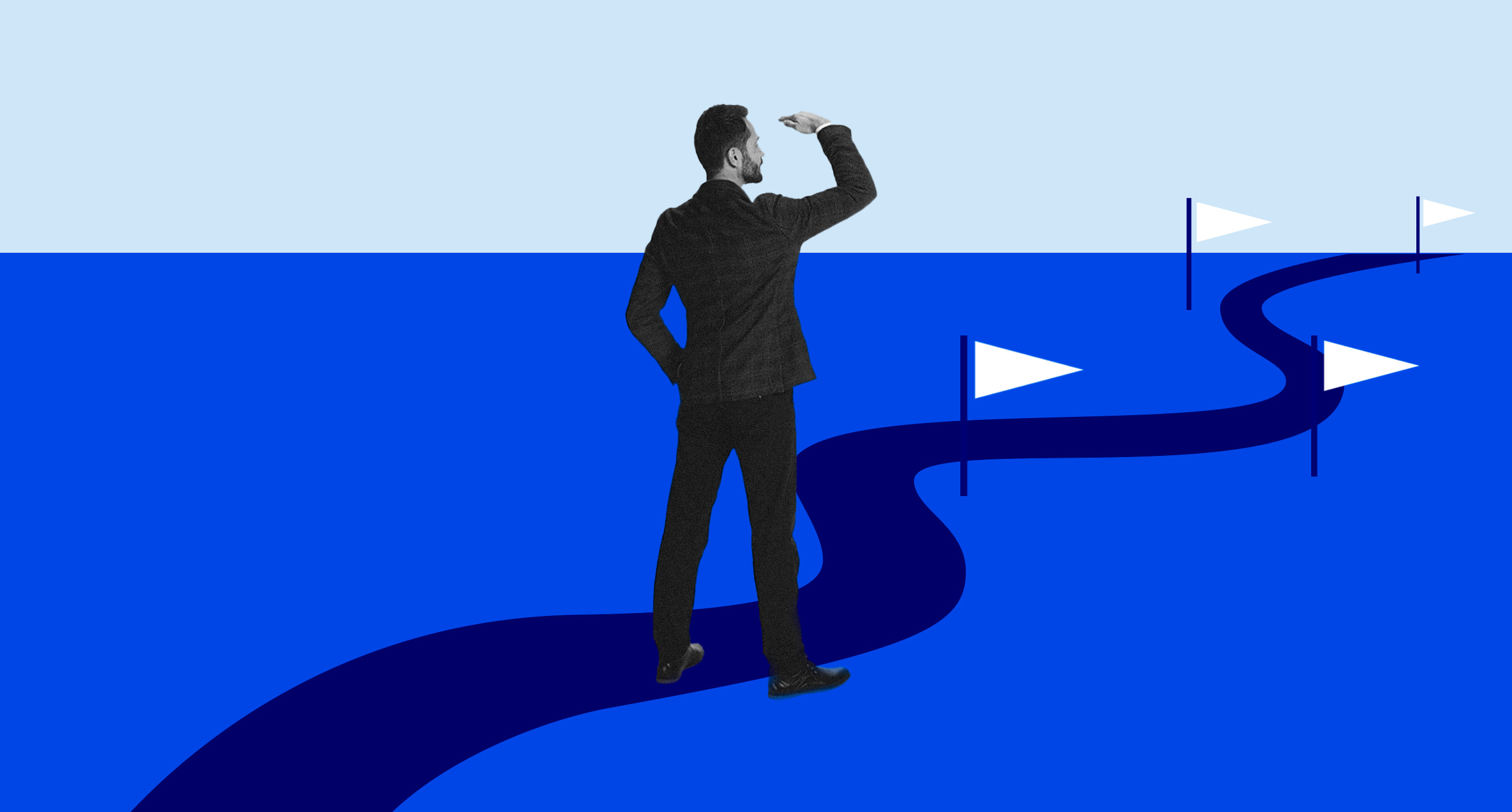22/03/2022
IP Lawyer Javier Fernández-Lasquetty discusses his prominent career, the future of intellectual property and technology law, and why students should consider a career in this dynamic field.
Javier Fernandez-Lasquetty is a practicing lawyer and senior Partner at Elzaburu SLP, a Boutique IP/IT firm in Madrid. With a successful career behind him, he’s uniquely positioned to educate a new generation of lawyers as a Professor of Industrial and Intellectual Property here at IE University. Javier’s expertise in intellectual property and technology law has also earned him positions on a range of legal advisory boards and authorities, and he’s authored several influential papers on IP, copyright, and licensing.
Can you tell us a little bit about yourself and your professional background?
I began my academic journey by obtaining my law degree at Universidad San Pablo – CEU.
I started my career working as legal counsel for SECOINSA, which was a public IT and telecommunications company that was later acquired by Fujitsu. At the time, I was the only fluent English-speaking attorney in the legal department. This gave me the opportunity to be involved in all kinds of international transactions, and more importantly, led me to transition into IT Law.
I spent the next four years as the Director of Technology Consulting, working within a team of 18 consultants from different specializations. From 1997 to 2003, I became a partner at multinational law firm, Baker & McKenzie. There, I was in charge of IP/IT at their offices in Madrid. I went on to join my current firm, Elzaburu SLP, as a partner in 2004. Elzaburu is a boutique IP/IT firm, and I oversee the Legal&Business Department.
That brings me to today. I continue to be a practicing lawyer, as well as a professor of industrial and intellectual property at IE Law School. I also served as Director of the IP&IT Advanced Programme —so in some ways, I’ve come full circle!
Why did you decide to pursue a career in intellectual property & technology law?
When I was younger, I wasn’t sure about which career path I wanted to pursue. However, my father steered me towards law early on. As soon as I began my studies, I knew I had made the right choice.

I spent my first years in the profession as a corporate lawyer, which is how I was first exposed to IT Law.
During those early days in SECOINA, nobody was really assigned to oversee the company’s IP—so, I decided to do it myself! I went back to school and discovered that I enjoyed exploring emerging issues in IP/IT Law that are created by technological developments. That’s how I began my journey in intellectual property & technology law.
Why should lawyers specialize in the area of intellectual property & technology law in today’s business landscape?
The world of business has changed a lot over the years and still constantly evolves. Soon, the most important assets for businesses will be the intangible ones. When I first started working, intellectual property and technology law was a very specialized field, confined to very specific sectors of economic activity.
Fast-forward to today, and the market for IP-related assets has exploded. There is a huge demand for intellectual property and technology law in areas such as entertainment, video games, and the audiovisual space, as well as a growing market for products that integrate IP and IT in business management.
We are also witnessing a huge boom in the exploration and use of artificial intelligence. This challenges many traditional IP principles, raising questions that we have never considered before. For example, can a machine be the author of an artistic work? Can it be the inventor of a patent? If not, to whom will these IP rights be attributed? These exciting debates will help us seek solutions for a new world.
Another exciting factor to consider is that we are entering into the data economy. We now use data in ways that were previously unimaginable. This raises numerous unresolved issues for us: ownership of data, how to do business with it, and which business models are applicable.
I would say that intellectual property & technology law has a key role to play in the business world of the future.

It establishes the necessary framework to protect these intangible assets, and defines how to bring them into play in a wide variety of businesses. Most importantly, it defends these assets against anyone who would want to abuse or usurp their use.
We have seen how digitalization, information technologies, and the intensive use of the internet and social networks have invaded every economic sector. The provision of legal services has not been spared in this disruption—so it is becoming increasingly necessary for lawyers to have an in-depth knowledge of this field.
What are the most essential skills that an intellectual property lawyer should have?
I would say that one of the most important qualities you must have is curiosity. Intellectual property and technology law is a dynamic field that gives you the opportunity to rub shoulders with a diverse mix of people and activities related to both the arts and sciences. You must have an in-depth understanding of the field in order to give the most effective advice. That requires immense curiosity, a willingness to learn, and an open mind. The rest is study, drive, passion and commitment.
Can you highlight some technological trends that you can foresee affecting the future of this field?
To answer that question, it’s important to separate the different areas of innovation in the field to assess how they are most likely to evolve.
In biotechnology and biomedicine, progress is already increasing rapidly. The Human Genome Project was a major breakthrough and opened up many new possibilities. More recently, the development of CRISP technology has boosted research and accelerated many development processes. The Pfizer and Moderna vaccines are a great example of this. And, as we face a booming global population and depleting soil fertility, bio-agriculture and bio-food will have a crucial role to play.
Another area to consider is information and communications technologies. Here, we will see exponential advancement in the next few years. Artificial intelligence and the data economy will signal massive technological developments in this area.

This is especially important as we are already heading towards Industry 4.0, as well as a knowledge economy.
But, how will this affect intellectual property? There are many general aspects of the field that will interact with any sector of technology. For instance, there is no doubt that patent activity will continue. However, trade secrets will become increasingly important for businesses. There will have to be greater efforts towards harmonization in this area, both at a European level (through a new directive or regulation) and globally. In fact, attempts at global harmonization in the field of patents are already underway. This is a positive step in the right direction.
Tensions over FRAND (Fair, Reasonable And Non Discriminatory) licensing will continue to spread. We are already seeing an increase in litigation, with the added complication of different jurisdictions and the application of different criteria. So, should we create a global jurisdiction for these issues? Should we look for alternative mechanisms to resolve such conflicts quickly and efficiently? We must answer these questions comprehensively to see progress in this area.
When it comes to copyright, tensions will continue between classical legal frameworks and AI-based creations. Some think that AI cannot be an author, but there is no shortage of people who think otherwise. New technologies will increasingly affect the audiovisual world: will we see films or series where there are no humans, but only virtual or augmented reality creations?
Lastly, NFTs and the metaverse will create a lot of new businesses. These, of course, will need to be regulated, presenting a new set of questions for IP and IT lawyers.
Do you have any parting words of advice for young lawyers starting their career in this area?
If you have chosen to pursue a career in Intellectual Property and Technology Law, congratulations! You will never have a boring moment in this field. But first, you must acquire the right professional training to get you started. The Master of Laws LL.M program here is a great choice if you want to learn from experienced faculty and network with leading industry professionals. You’ll also be able to gain specialized training in intellectual property and technology law, which will give you a competitive advantage.
In terms of attributes, you must be curious and adventurous, but also studious and precise. Learn from your clients; listen to them and know their business. That is the only way you can give really effective advice.








